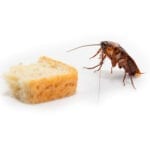There are 1500 species in the rodent family including mice, rats, guinea pigs, hamsters and beavers. Although many different species make up the rodent family, that does not include rabbits as many people think. According to the CDC Rodents are high risk disease vectors, with the potential to carry and transmit over 35 diseases. Rodents’ teeth are constantly growing and as a result have to constantly gnaw on wood and other hard materials to keep their teeth in working order. For this reason, rodents can become a big problem when they chew through structural wood or wires in houses. They have a well developed sense of smell, hearing and taste. Most rodents are herbivores and eat flowers, stems, leaves and gnaw on bark.
Rodent species are found in every terrestrial habitat on Earth. Many rodents are good swimmers and can hold their breath for a very long time! The three most common pest species of rodents in South East Queensland are the Brown Sewer Rat (Rattus norvegicus), the Black Rat (Rattus rattus) and the House Mouse (Mus musculus). Keep reading on to find out our 5 tips on how to prevent a rodent infestation.
1. Seal up holes in your home
Our first tip is to seal up any holes that could be entry points for rodents into your home. These include around windows, doors and walls, kitchen cabinets, pantry and pipes. Rodents love to hide in dark areas so make sure any basements, garages and attics are also sealed up. Rodents are notorious for being able to find tiny gaps and fit through them. As they can also chew holes in wood it is important to be aware of any spots that look like they have suffered any damage. If you notice any damage or signs of rodents contact your local Hervey Bay or Maryborough pest control service immediately.
2. Clean up after meals
Our next tip is to make sure you clean up after every meal. Make sure water spills are mopped up and keep floors and surfaces clean in areas where food is prepared or consumed. One of the most effective ways to keep rodents at bay is to make sure you clean up after cooking and eating, this includes doing the dishes and wiping down benches and surfaces after every meal. It is important to keep food in tightly sealed containers as rodents can easily get access to unsecured containers.
3. Get a regular pest control service
Making sure your rodent pest control and baits are up to date and in date is an easy way to ensure that no rodents are gaining entry to your home. Talk to your local pest control service if you’re unsure what your home needs as everyone’s requirements will be different.
How often should you replace baits?
How often you replace bait depends on the amount of rodent activity in your house. Your bait should be checked regularly, to see how much of the bait is being consumed. If there is a lot of activity your bait will be used quickly. Once your bait has been used up, if it is not replaced quickly the mice will have a chance to build up. At the start you should check the baits daily. After a few days worth of time, you should have an idea how quickly the mice are eating the bait. If the bait is barely getting eaten, you will only need to check the bait weekly or even monthly thereafter. If the bait is getting eaten quickly you will need to keep checking the bait regularly. The bait will also have to be replaced more often.
After the baits have been out for a while, the rate at which they are eaten will steadily decline. This will allow you to replace the baits less often until eventually you haven’t got a rodent problem.
In saying that, there should always be some rodent baits around to prevent any mice or other rodents from getting worse. Rodent baits will eventually get moldy or insect infected so these baits need to be replaced occasionally. If you notice any mold or insects around the bait, you should get the baits replaced.
If you’re in need of a pest control treatment in Hervey Bay or Maryborough contact Ivey’s Carpet Cleaning and Pest Control today.
4. Remove all water sources
This last tip surprises many people, but like many other animals rodents also need water. Without a constant supply of water, rodents will soon move on to another location. Make sure you’re emptying out buckets and other stagnant water sources outside your home (also a good tip for keeping mosquitos at bay) and making sure any leaky plumbing inside the home is repaired. Remember that pet water bowls are another source of water and should be placed in an open area where rodents are unlikely to be.
If you think you have a rodent problem, contact us at Ivey’s Carpet Cleaning and Pest Control today for a FREE quote. We offer a wide range of pest control services including ants, rodents, cockroaches, spiders, bedbugs, fleas and termites.
Extra resources:
https://www.cdc.gov/rodents/prevent_infestations/index.html



